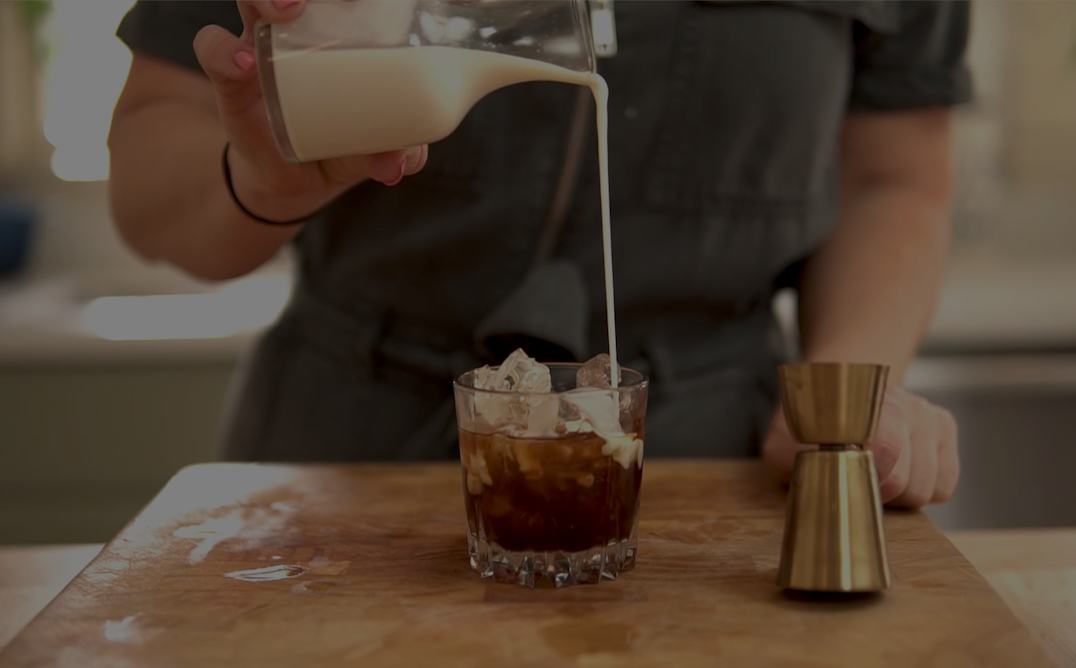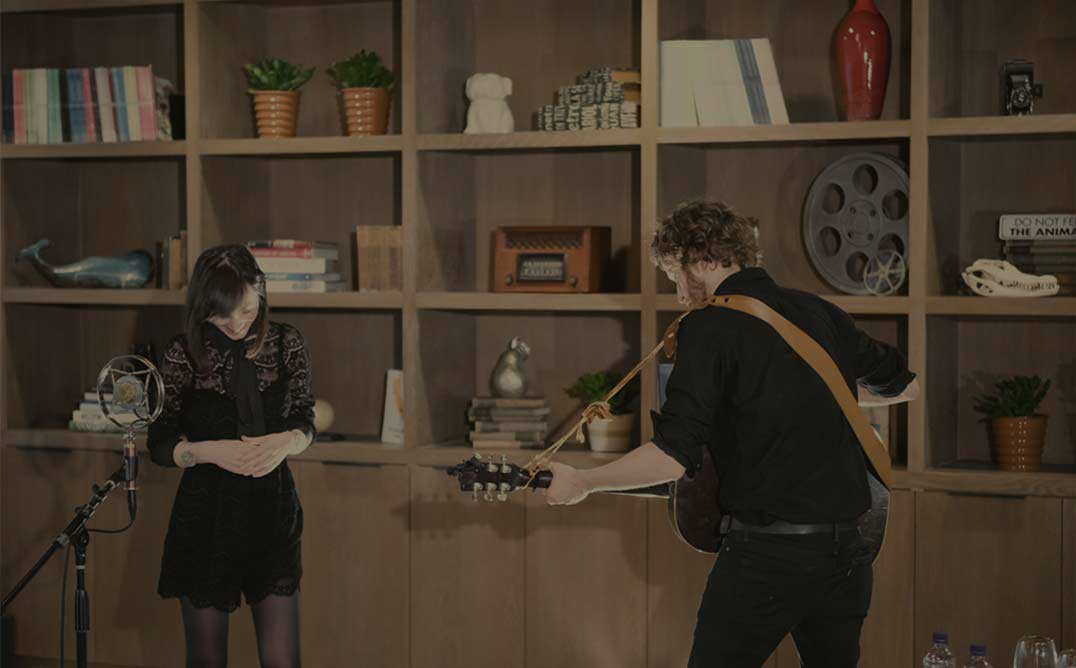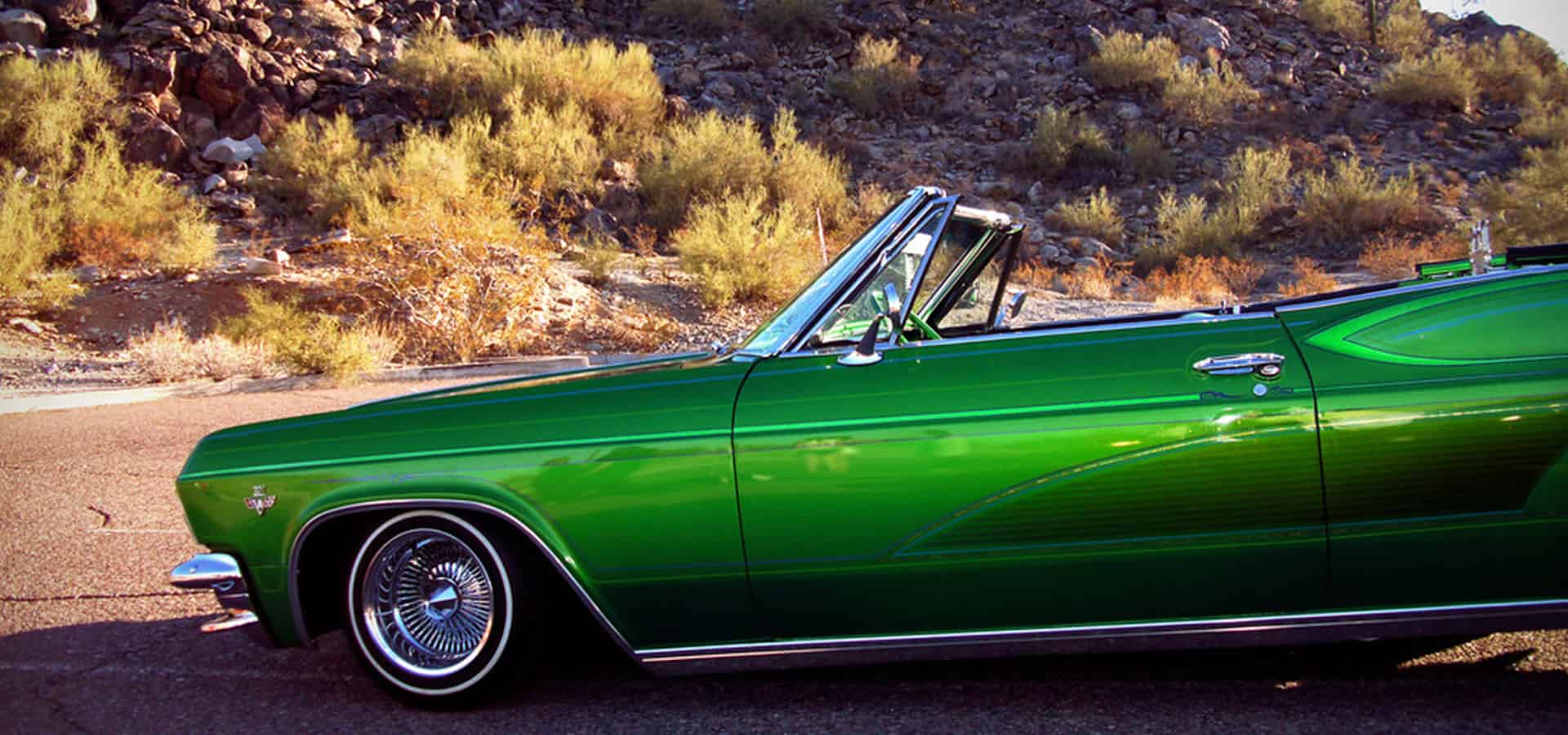
Going “Low and Slow” in East Los Angeles
A look at the cars and clubs of the decades-long lowrider culture.
-
CategoryArts + Culture
Lowrider culture, a lifestyle born in Los Angeles and especially the Eastside, has weaved through the city’s fabric for an astonishing 70 years. These customized vehicles are generally individually painted with intricate, colorful designs, ridden on 13-inch wire-spoke wheels with whitewall tires, and fitted with hydraulic systems that allow the vehicle to be raised or lowered at the owner’s command. Given these specific characteristics, while a lowrider is not always a lowered car, a lowered car is always a lowrider.
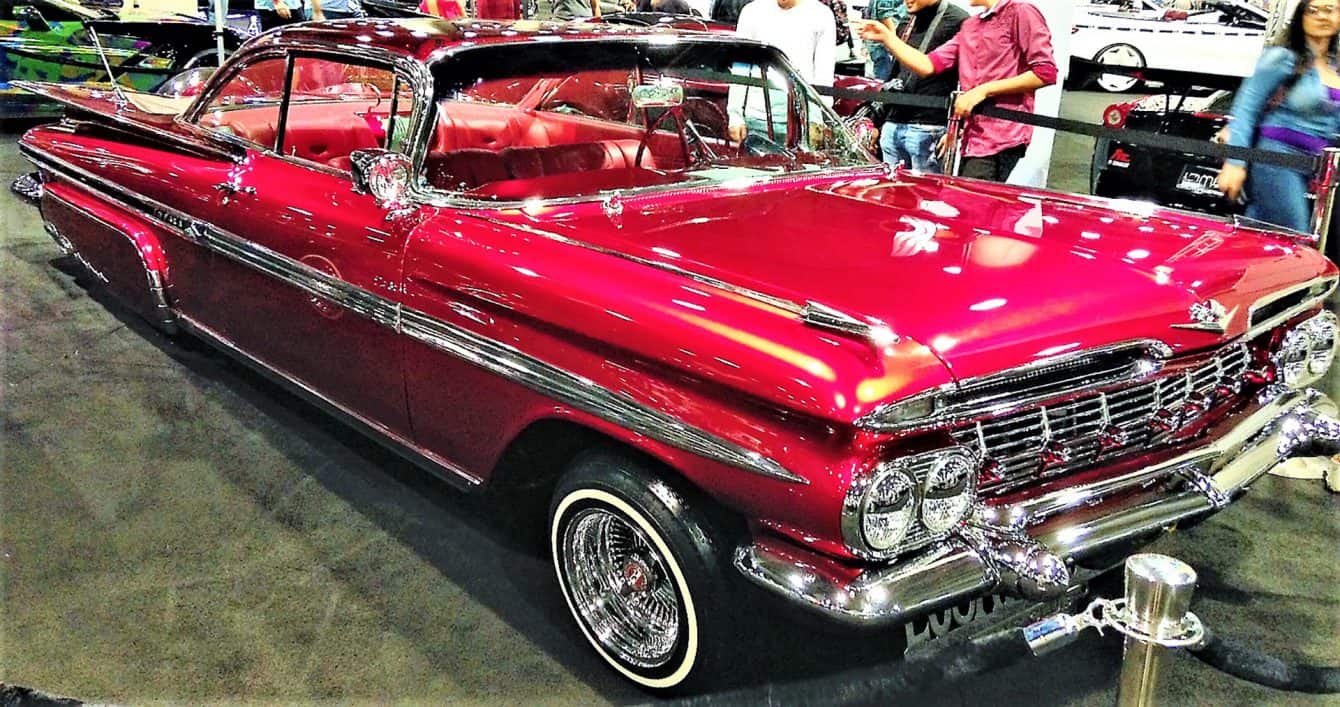
It began in Los Angeles, California in the mid-to-late 1940s and during the post-war prosperity of the 1950s. Initially, some Mexican-American barrio youths lowered blocks, cut spring coils, z’ed the frames and dropped spindles. The aim of the lowriders is to cruise as slowly as possible, “Low and Slow” being their motto. By redesigning these cars in ways that go against their intended purposes and in painting their cars so that they reflect and hold meanings from Mexican culture, lowriders create cultural and political statements that go against the more prevalent “Anglo” culture. The design of the cars encouraged a “bi-focal perspective-they are made to be watched but only after adjustments have been made to provide ironic and playful commentary on prevailing standard of automobile design.” However, this resulted in a backlash: The enactment of Section 24008 of the California Vehicle Code in January 1, 1958, which made it illegal to operate any car modified so that any part was lower than the bottoms of its wheel rims.
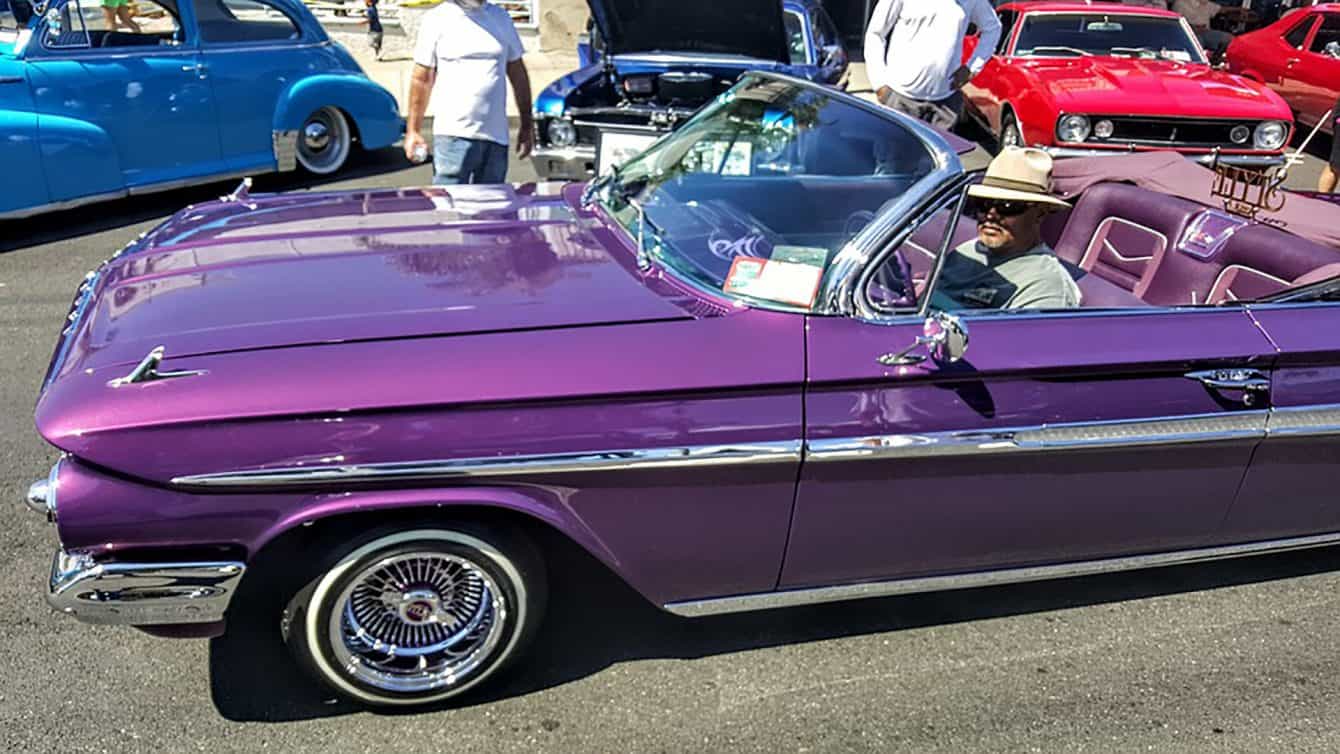
In 1959, a Mexican-American customizer named Ron Aguirre developed a way of bypassing the law with the use of hydraulic Pesco pumps and valves that allowed him to change ride height at the flick of a switch. The following year saw the emergence of the Chevrolet Impala, which featured an X-shaped frame that was perfectly suited for lowering and modification with hydraulics. Between 1960 and 1975, customizers adapted and refined GM X-frames, hydraulics, and airbrushing techniques to create the modern lowrider style.
Today, the lowriding scene is diverse with many different participating cultures, vehicle makes and visual styles. Essentially all the options available to today’s custom automobile creator are also available to the lowrider builder, and lowrider style varies greatly from region to region.
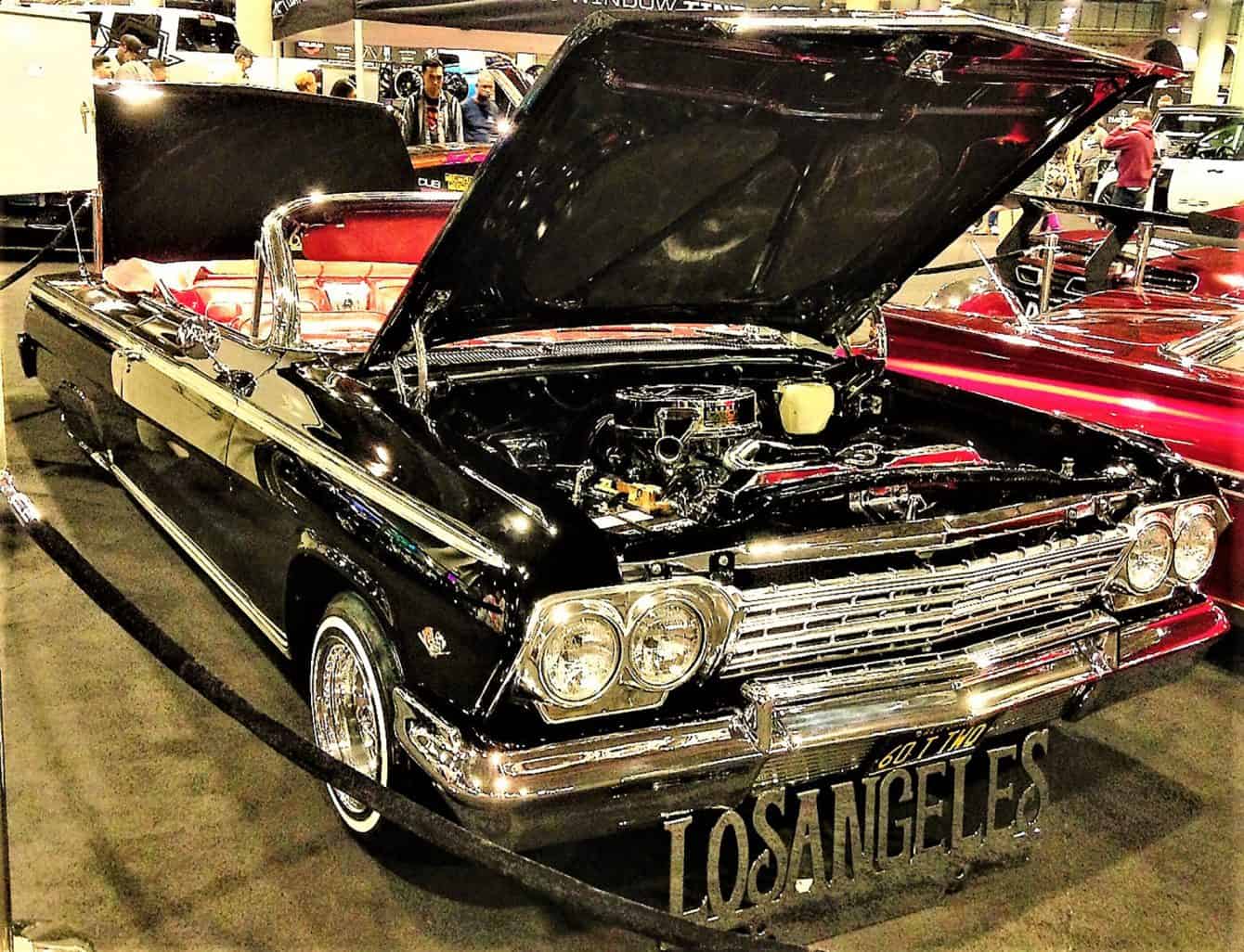
“There are hundreds of car clubs here, and Lowriders is a peek into the culture,” shares the film’s executive producer Mister Cartoon, also a car builder and tattoo artist, in a piece for Los Angeles Magazine. “There’s fellowship and brotherhood among people who are like-minded—people who pay the chrome bill before the phone bill. But the movie will educate, too. For years Hollywood has been depicting lowriders as drive-by and murder vehicles. This film is one of the few opportunities we have to show the making of a lowrider: the patience it takes, the families involved. I built the key car in the film, Green Poison. I also designed the tattoos on the characters, the car club plaques, the tees the car club guys wear, and the graffiti on the walls. My partner, Estevan Oriol, and I made sure it looked authentic.”
Read more about what it takes to make a lowrider here.
And view the trailer for Mister Cartoon’s film Lowrider here.
The Los Angeles Dodgers Are Having One Hell of a Season
Love them or hate them, you can’t argue with that record.
Bringing LA Residents to the (Dinner) Table to Discuss Race and Inequality
Breaking bread and making a difference.
Oakland “Avant Pop” Artist Still Woozy Wants to Be Your New “Habit”
Directed by Shawheen Keyani, the video is the second visual off his ‘Lately’ EP.








